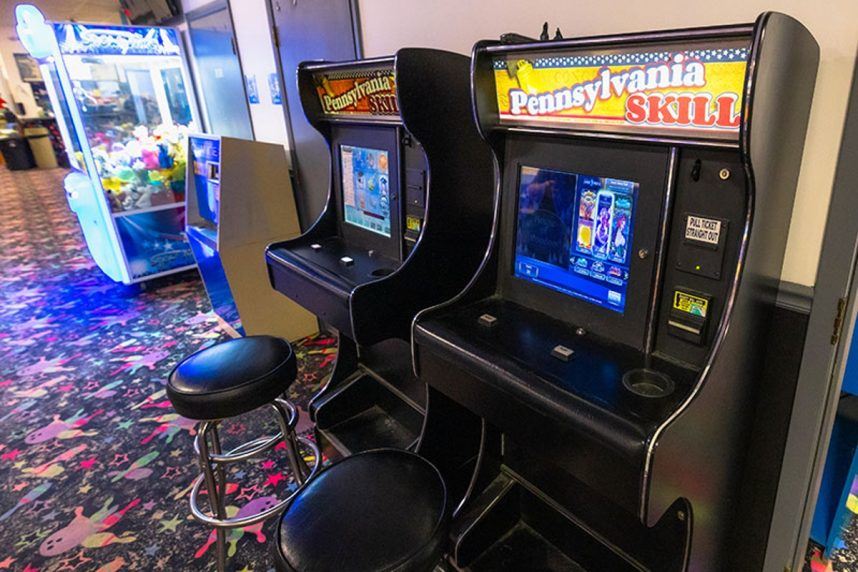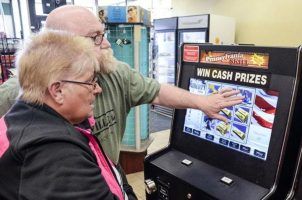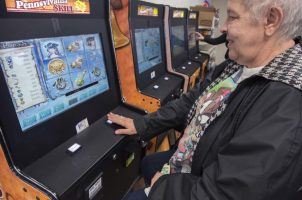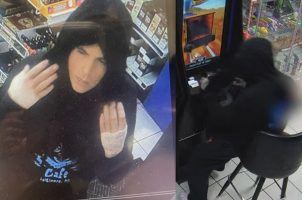Prominent District Attorney in Pennsylvania Calls for Skill Gaming Clarity
Posted on: April 25, 2024, 11:33h.
Last updated on: April 25, 2024, 02:08h.
A prominent county prosecutor in Pennsylvania is urging state lawmakers in Harrisburg to pass a regulatory bill for skill games, the controversial slot-like gaming machines that the casino industry claims constitute illegal gambling.

Berks County District Attorney John Adams wrote an op-ed published by the Reading Eagle calling on the General Assembly to provide law enforcement with clarity about the games that are most commonly branded “Pennsylvania Skill.” Adams says police are confused as to whether the gray gaming machines that continue to proliferate in restaurants and bars, gas stations, grocery stores, and bodegas are legal or not.
Adams, who chairs the Pennsylvania District Attorneys Association’s Communications Committee, says skill games have attracted criminals who know the games are holding considerable cash and many host businesses have few to no security protections in place.
“Thieves know that these machines have cash boxes. They know that, unlike highly regulated casinos, the local shops with skill games generally have few or no security procedures in place,” Adams wrote.
Regulation Needed
Pennsylvania courts have issued a series of decisions that favor the skill gaming industry on conclusions that the skill element of the terminals’ operations renders the apparatuses immune from the state’s Gaming Act. As a result, law enforcement is not able to seize skill gaming machines or their associated cash.
While a legal challenge remains before the Pennsylvania Supreme Court, Gov. Josh Shapiro (D) in his 2024-25 budget blueprint included revenue from the legalization of skill games. The machines don’t currently generate tax revenue for the state or host county/municipality. The profits are instead split between the game software developer and terminal manufacturer, route distributor, and host business.
Shapiro proposed a 42% tax on gross skill gaming proceeds. Bipartisan legislation filed in February seeks a lesser tax of 16%.
In his editorial, Adams says the Pennsylvania District Attorneys Association doesn’t support nor oppose skill gaming legalization, but it does want clarity on the law surrounding the games.
“The district attorneys are urging lawmakers to give law enforcement clear guidance on what is legal and what is illegal with respect to skill games. They also are seeking consumer protection measures, security requirements, and mechanisms to prevent underage use,” Adams continued.
“Without security requirements and regulation, these skill games will continue to attract criminals in search of easy money. And that puts all of us at risk,” the Berks County DA concluded.
Casino Fined for Regulatory Violation
There have been many incidences of minors playing skill games, events that go unpenalized. For the state’s highly regulated casinos, that isn’t the case.
The Pennsylvania Gaming Control Board (PGCB), which regulates the state’s 17 brick-and-mortar casinos, iGaming, retail and online sports betting, video gaming terminals at truck stops, and fantasy sports, fined Hollywood Casino at The Meadows this week for allowing an individual on the state’s Self-Exclusion List access to gamble.
State gaming regulators say casinos must deny self-excluded persons access, a stipulation The Meadows casino operated by Penn Entertainment failed to comply with.
Not only do casinos face consequences but so does the self-excluded person who attempts to enter a casino. The PGCB explains that a self-excluded individual caught inside a casino can be charged with defiant trespass, a misdemeanor, which was the case in The Meadows incident.
Related News Articles
Pennsylvania Skill Games Ruling Appealed to State Supreme Court
Most Popular
Mirage Las Vegas Demolition to Start Next Week, Atrium a Goner
Where All the Mirage Relics Will Go
Most Commented
-
Bally’s Facing Five Months of Daily Demolition for Chicago Casino
— June 18, 2024 — 12 Comments -
Chicago Pension Mess Highlights Need for Bally’s Casino
— July 2, 2024 — 5 Comments
















Last Comments ( 2 )
In Pennsylvania, more than 90 percent of brand new members at Gamblers Anonymous meetings mention PA Skill Machines as a major factor that changed their gambling fun into a severe gambling addiction. Was there skill involved in contributing to the death of their dreams? Yes, and those same compulsive gamblers will say without hesitation that it was their own best thinking that got them to the point of admitting defeat.
When the determination was initially made that Pennsylvania Skill Machines are not "gambling devices" those good ol' boy back-slappin' decision -makers probably gave less than two minutes of thought to this before quickly rationalizing that an element of skill was involved in the outcome -- and then high-fiveing with beaming smiles and laughter. Do some research today and learn why blackjack offers the best odds of winning to the gambler. Thats because perfect blackjack strategy requires SKILL! Everyone agrees that blackjack is clearly gambling, right? Post your thoughts and comments here today.